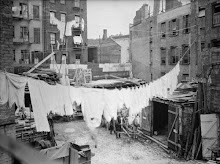“waiting at
the barrier, your perception can remodel itself so that you are convinced the
person you are waiting for is the person right there, right at the back of the
crowd, just coming, just coming. –But she doesn’t come. And you begin to give up.
Every figure in the crowd looks like her. Her hair, her nose, her neck. And
then, suddenly, so blatantly it is obscene, they turn into someone else,
someone so ordinary, you are staggered.
When she does
come, you falter, she fails. That’s her? She’s shrunk several inches since you
last saw her, and what terrible ankles.
Gradually, your artfulness tries to tell you, you are not in love at
all.” Mark Cousins
“My thoughts
were now concentrated upon the entrance to the ballroom door where I had suddenly
perceived the back of somebody’s head. So he had come, after all. The fact that
I never thought he would (such a serious character) had in no way mitigated my
disappointment that he had not; now here he was. I must explain that the image
of Sauveterre, having reigned in my hopeless heart for several months had
recently been ousted and replaced by something more serious, with more reality
and promise.
The back of a
head, seen at a ball, can have a most agitating effect upon a young girl, so
different from the backs of other heads that it might be surrounded by a halo.
There is the question, will he turn round, will he see her, and, if so, will he
merely give a polite good evening or invite her to dance? Oh, how I wished I
could have been whirling gaily round in the arms of some fascinator instead of
sitting with my aunts and uncles, too obviously a wall0flower. Not that it
mattered. There were a few moments of horrible suspense before the head turned
round, but when it did he saw me, came straight over, said good evening more
than politely and danced me away. He thought he would never get here, it was a
question of borrowed, but mislaid, knee-breeches.” Nancy Mitford
Fate Playing
Because the
message somehow met a goblin,
Because your
precedents tripped your expectations,
Because your
London was still a kaleidoscope
Of names and
places any jolt could scramble,
You waited
mistaken. The bus from the North
Came in and
emptied and I was not on it.
No matter how
much you insisted
And begged
the driver, probably with tears,
To produce me
or to remember seeing me
Just miss
getting on. I was not on it.
Eight in the
evening and I was lost and at large
Somewhere in
England. You restrained
Your
confident inspiration
And did not
dash out into the traffic
Milling
around Victoria, utterly certain
Of bumping
into me where I would have to be walking.
I was not
walking anywhere. I was sitting
Unperturbed,
in my seat on the train
Rocking
towards Kings Cross. Somebody,
Calmer than
you, had a suggestion. So,
When I got
off the train, expecting to find you
Somewhere
down at the root of the platform,
I saw that
surge and agitation, a figure
Breasting the
flow of released passengers,
Then your
molten face, your molten eyes
And your
exclamations, your flinging arms
Your
scattering tears
As if I had
come back from the dead
Against every
possibility, against
Every
negative but your own prayer
To your own
gods. There I knew what it was
To be a
miracle. And behind you
Your jolly
taxi-driver, laughing, like a small god,
To see as
American girl being so American,
And to see
your frenzied chariot-ride –
Sobbing and
goading him, and pleading with him
To make
happen what you needed to happen –
Succeed so
completely thanks to him.
Well, it was
a wonder
That my train
was not earlier, even much earlier,
That it
pulled in, late, the very moment
You irrupted
onto the platform. It was
Natural and
miraculous and an omen
Confirming
everything
You wanted
confirmed. So your huge despair,
Your
cross-London panic dash
And now your
triumph, splashed over me,
Like love
forty-nine times magnified,
Like the
first thunder cloudburst engulfing
The drought
in August
When the
whole cracked earth seems to quake
And every
leaf trembles
And
everything holds up its arms weeping.
Ted Hughes
“I was not at
all curious about who she was, but rather took her for granted at once. Bony,
empty face that wore its emptiness openly. Bare throat. A blouse thrown on.
Looked very domestic.” Kafka’s first sight of Felice Bauer.
They arranged
to meet in Berlin at Easter 1913. This would be their first meeting since that
August evening at Brod’s. But nothing was simple for Kafka. There were
obstacles and delays, promises, postponements. When he did arrive, Felice was
not there to greet him. He could not understand this. On paper headed ‘Hotel
Askaniche Hof, Berlin’ he wrote: ‘But what happened, Felice? You must surely
have received my express letter on Friday in which I announced my arrival on
Saturday night. Surely this particular letter cant have gone astray. And now I
am in Berlin and will have to leave again this afternoon at four or five.”
















